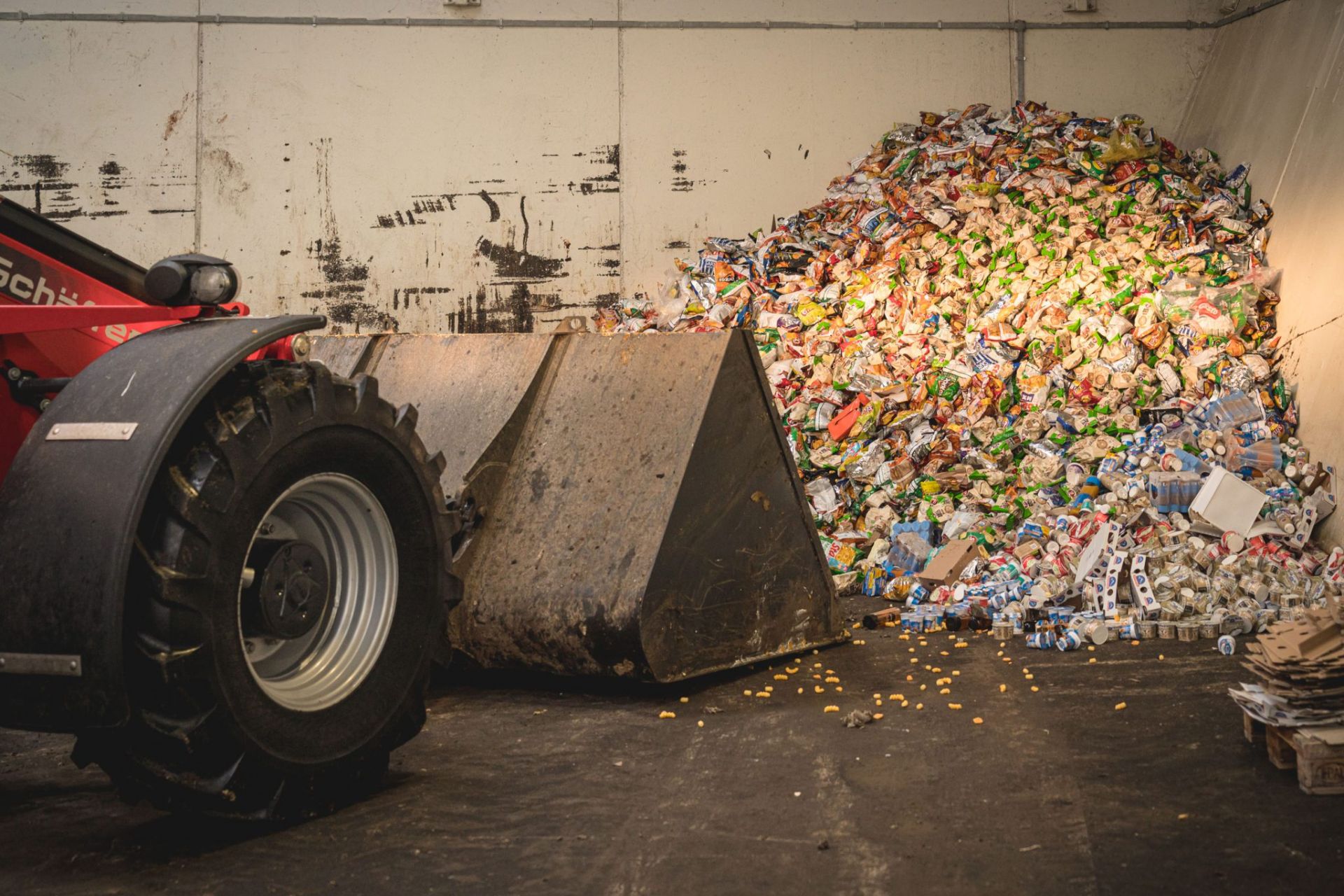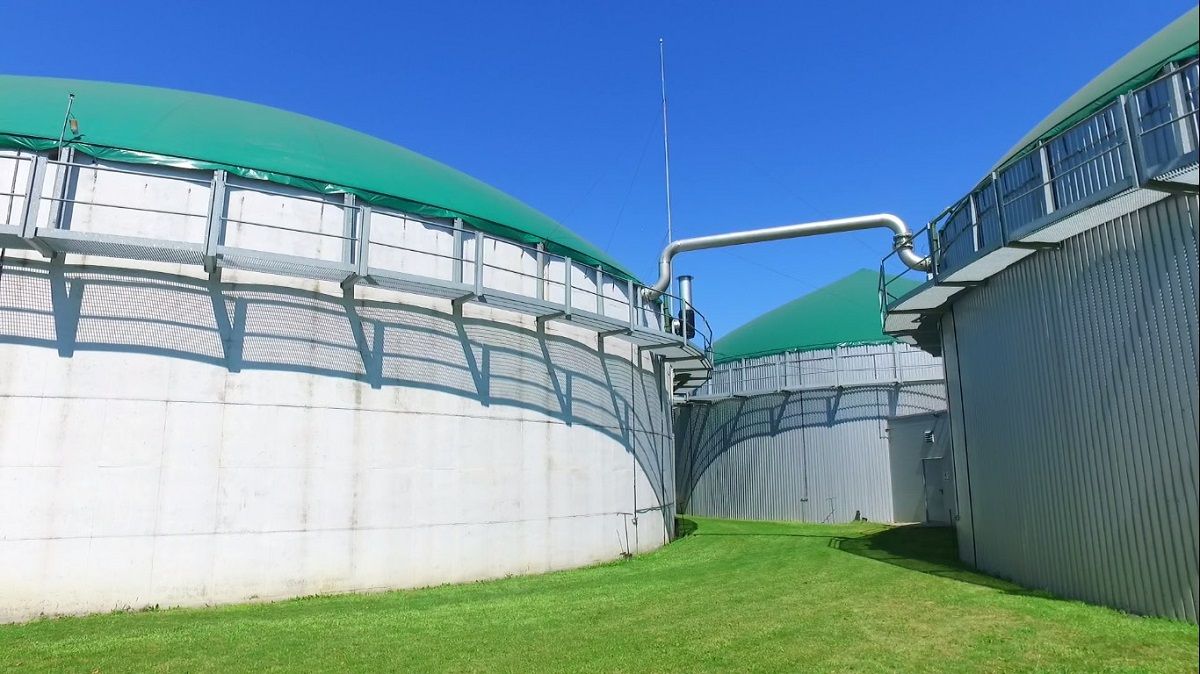
The German who turns Romanian garbage into gold
A German investor has brought to Romania a technology capable of turning garbage from our dumpsters into cheap electricity for Romanians. Michael Dietrich's factory in Filipeștii de Pădure, Prahova, looks like three flying saucers landed in the Romanian Plain.
There are three huge concrete vessels with a roof on top like half-flying balloons. The investment has a complicated name: „biogas co-generation renewable energy plant”, but more simply, it's about installations that simulate on a huge scale what goes on in a cow's stomach.
Domestic waste is chopped up in an engine and the resulting paste is put into huge hermetically sealed containers, where it is left to ferment. Naturally, fermentation produces gas, the gas is captured in the balloon roofs and from there it is transported to a motor that produces electricity and heat. All this without any pollution. The resulting electric and thermal energy is a third cheaper than that supplied by the national grid. And it does not even take much garbage to make a lot energy. For example, from the dump truck of expired chips that has just arrived at his factory, Dietrich could keep a light bulb on, without interruption, for 70 years. The energy produced is enough to provide electric lighting for a two-room household at night, for a person's lifetime.
“You can make electricity out of any organic mass: from chips, from yogurt, from medicine capsules. Romania has a huge potential. Everyone could benefit from cheaper electricity and heat”, Dietrich says from the shadow of his facilities.
Michael Dietrich came to Romania in the 1990s, on a holiday in the Danube Delta. He was part of a family of ethnic Germans who managed to escape across Romanian borders before 1989. After that memorable holiday in our country, he decided to stay in Romania. In 1997 he started small businesses here and later moved on to a more serious construction business, from which he managed to raise the 5 million euros needed to open the factory in Filipeștii de Pădure. In 2011, he learned about a technology that was a big hit in his country: biogas plants. In Germany, there are already 10.000 of such plants running continuously, and he thought that he could not fail to succeed with this business in our country. He bought a hectare and a half of land in Prahova. He carefully chose the location near a small industrial-processing area, so that what the plant would produce would quickly reach a beneficiary. He figured he would do twice as much good for Romania. Not only will it produce gas, heat and electricity that everyone can afford, but we will also get rid of the toxic household waste that, simply dumped in landfills, damages the environment and human health. “We have a pollution of nature, of the environment, which is senseless and harms everyone. And this can be avoided. We can use the waste instead of throwing it away and let it rot in the air”.
More on: https://viitorulromaniei.ro/2017/11/21/neamtul-care-face-bici-din-gunoiul-romanesc/




